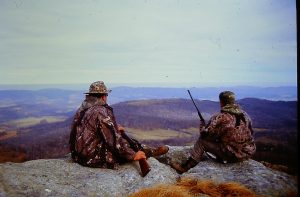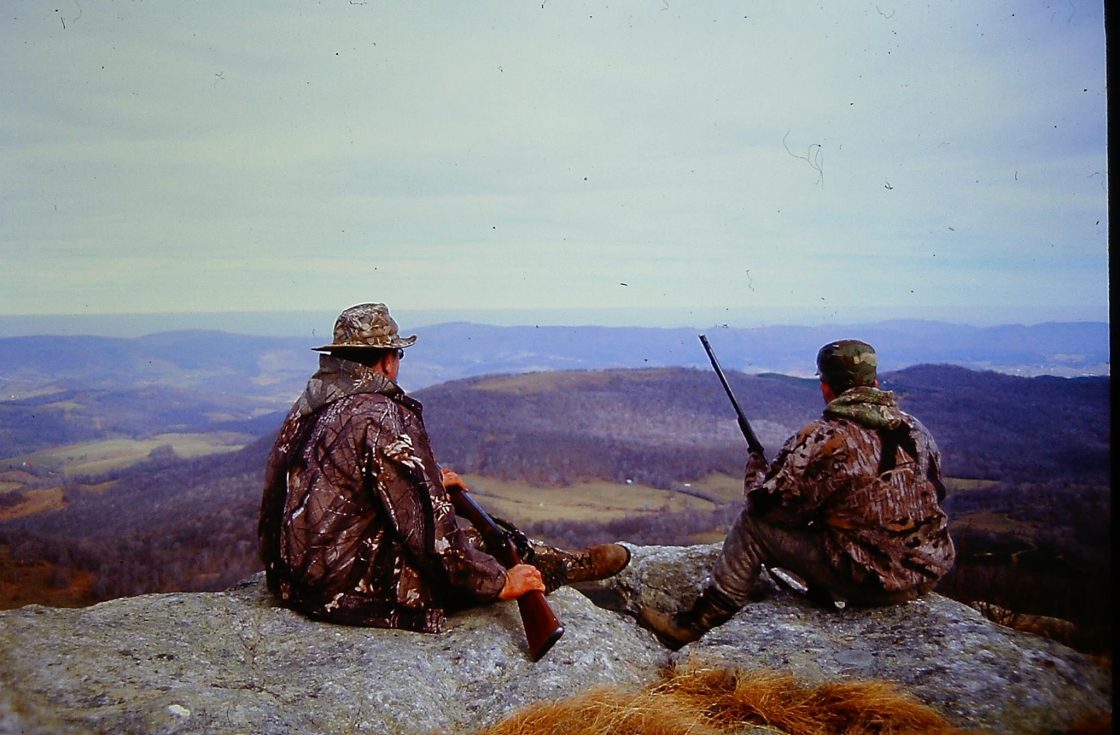From where I am sitting this morning I can see 22 different species of trees. That fact may not be remarkable to most people, but to me, it represents the age and wonder of our Appalachian mountains. This is not to mention the dozens of species of shrubs, flowering plants, mammals, birds, reptiles and amphibians that are either visitors to, or wholly unique to, this region. I have spent my entire lifetime studying these things; as a college-trained and professionally employed wildlife biologist and forester, as one of a long line of my family to live in this area, and, most importantly, as a hunter. This is my short testimony on that subject.
 We Hamptons have a fall tradition: it’s called hunting season. If you do not hunt I doubt I can explain it to you. Hunting is one human endeavor that that I truly believe cannot be encapsulated in words, but must be experienced to be understood. You cannot watch videos on the outdoor channel and think you know what hunting is all about, because no video ever made can make you feel the smooth, waxy perfection of paper shotgun shells, fingered in hunting coat pockets, on a frosted New River foothills November morning with a pack of wagging beagles at your feet; or the spine-tingling excitement of a grouse flush at your back, as you beat your way through a mountainside ice-storm deadfall grapevine thicket, wondering why the dog didn’t pick up the scent.
We Hamptons have a fall tradition: it’s called hunting season. If you do not hunt I doubt I can explain it to you. Hunting is one human endeavor that that I truly believe cannot be encapsulated in words, but must be experienced to be understood. You cannot watch videos on the outdoor channel and think you know what hunting is all about, because no video ever made can make you feel the smooth, waxy perfection of paper shotgun shells, fingered in hunting coat pockets, on a frosted New River foothills November morning with a pack of wagging beagles at your feet; or the spine-tingling excitement of a grouse flush at your back, as you beat your way through a mountainside ice-storm deadfall grapevine thicket, wondering why the dog didn’t pick up the scent.
What you see on a majority of hunting television is orientated to make filming easier and an attempt to showcase the advertisement of outdoor products—it simply is impossible under those circumstances to portray the complex and intensely personal nature of hunting (There are a few shows that attempt to tell the story of hunting from the personal and spiritual level, Dr. Grant Woods and his growingdeer.tv site on the internet and Ron Bellan’s Reaper Outdoors are two that do a good job of getting the message out, but for the most part this subject is far bigger than what can be explained with 20 minutes of footage once a week).
 My feeling has always been this: Most people that condemn hunting as barbaric do so without thought or regard to the destruction their own lives inflict on wildlife and wild places, and if you are truly interested in hunting and why people do it, you should go with someone that hunts and see it, personally, for yourself. Perhaps then you could gain a better grasp on your own humanity and this timeless human passion—and just maybe catch a glimpse into the heart of historic Appalachian culture.
My feeling has always been this: Most people that condemn hunting as barbaric do so without thought or regard to the destruction their own lives inflict on wildlife and wild places, and if you are truly interested in hunting and why people do it, you should go with someone that hunts and see it, personally, for yourself. Perhaps then you could gain a better grasp on your own humanity and this timeless human passion—and just maybe catch a glimpse into the heart of historic Appalachian culture.
I have written about my hunting experiences since my high school days, and poured over dozens of volumes of sporting literature by many authors in that time, and the one thing I can positively say about all that writing is while much of it is wonderful prose and it may come close to the subject, it simply cannot take you there. So, I do not try to explain hunting to folks. I just invite them to join me.
The leaves are changing and the mornings are silver frost; the squirrels are cutting, the ducks and geese migrating and the bucks are starting the rut. The corn has been cut, the garden is done and the dogs are shivering with excitement.
It is fall in Appalachia: I wish you would join us.

